AI content doesn’t rank on Google. But there’s not been an announcement of Google using an AI detector.
As a matter of fact, as long as the content is good, Google has no complaints about it.
But why doesn’t AI content rank then?
The answer lies much deeper than in an AI detector.
Let me show you why and settle this once and for all.
Does Google Use AI Detector?
First, we need to answer the question: Does Google use an AI detector?
Yes and no.
- Yes, because Google detects spammy and low-quality content by design.
- No, because Google has stated they don’t care how one produces content (as long as it’s good and helpful).
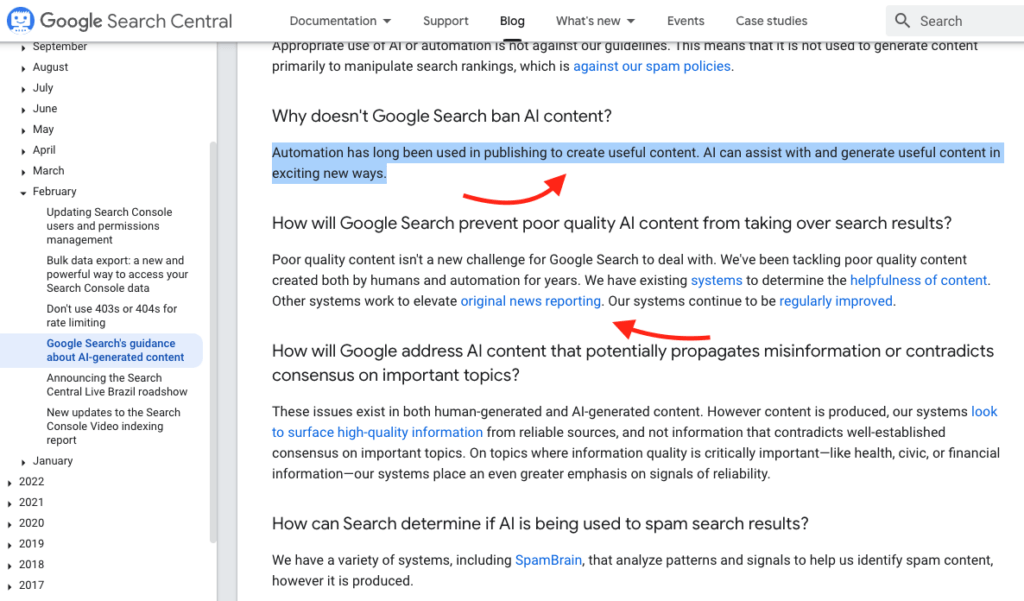
So there’s no direct AI-detection mechanism on Google. But AI-written content is still very unlikely to rank on Google.
This is because no matter what you do, AI can only write very low-quality content.
I posted 100 highly optimized AI posts on my site. 6 months after launching the site, it got 2-3 visitors/month. Meanwhile, almost an identical site with hand-written content started to get 1,000+ visitors per day.
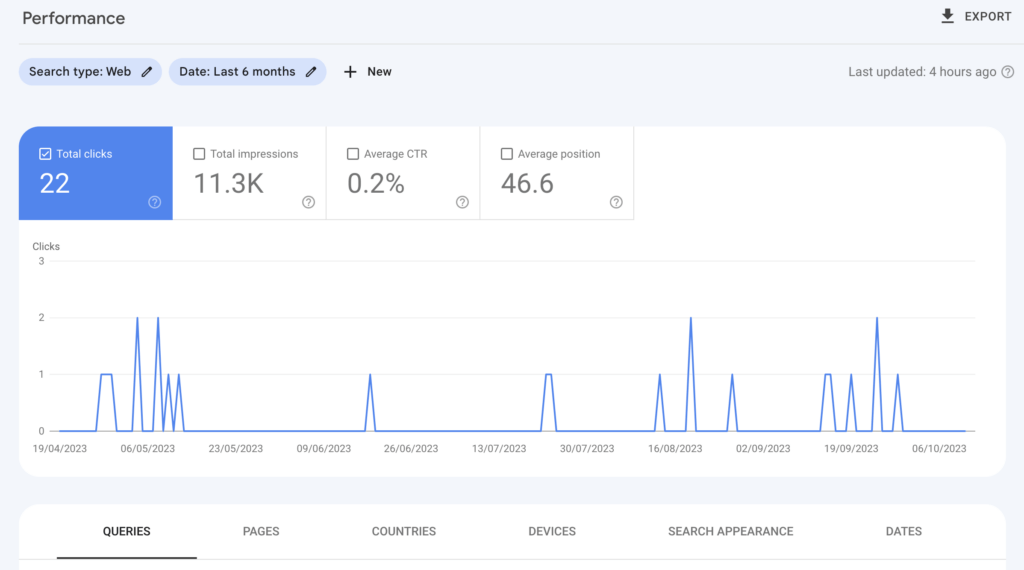
Why AI Content Doesn’t Rank?
To rank on Google, the three main pillars of a blog post are:
- Unique content
- Demonstration of First-hand experience
- Useful visuals
Sadly, AI fails in all of these.
1. Unique Content
Every blog post should “add to the internet”. Otherwise, there’s no reason for Google to rank that page.
This is the first breaking point of AI-written content.
Surely, AI can spin existing content in its own words. But this doesn’t add to the web on a deeper level.
Let’s take a simple example:
You own a small library. There is a great book about cats. One day, someone brings another cat book, but it’s exactly like the first one but the words are different. If you’re smart, you don’t keep the new one because it doesn’t add anything new.
This is how Google works. Google has spent 25+ years developing a system that does exactly what the librarian in the example does.
Google analyzes web pages carefully. It only includes pages that “add something to the web”.
With AI, you’re essentially writing “just another copy” about your topic. That will never work.
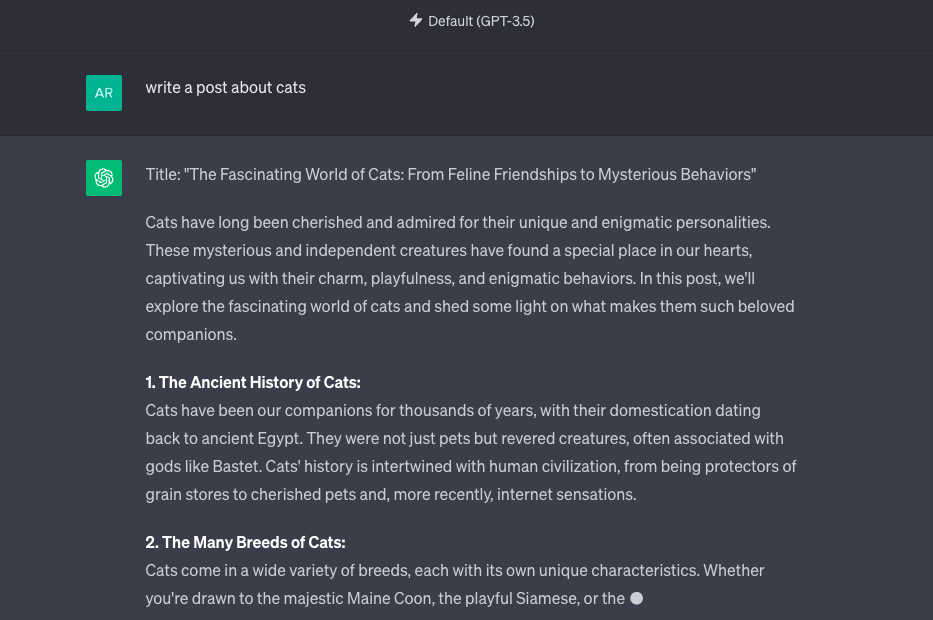
2. First-Hand Experience
AI writes content by guessing the next word. It doesn’t think, see, or experience.
It’s just a mathematical function that takes an input and predicts the output.
When it comes to ranking on Google, one of the most important things is to show experience and expertise in your content.
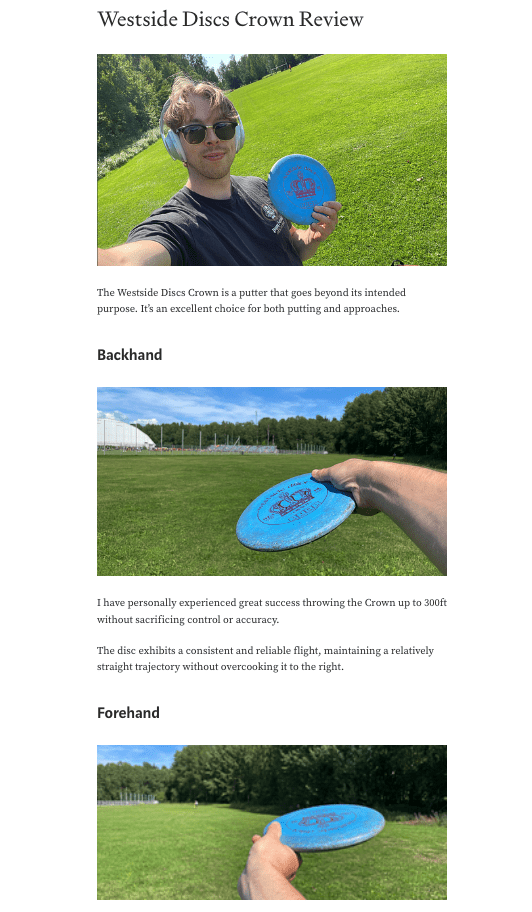
Needless to mention this is something that the AI cannot do. Not even close.
Similarly, AI cannot relate with the audience because it hasn’t experienced their pain points.
In most topics, the lack of reliability and real-life experiences is enough to cause Google not to rank blog content.
3. Useful Visuals
These days, people expect blog content to be highly visual.
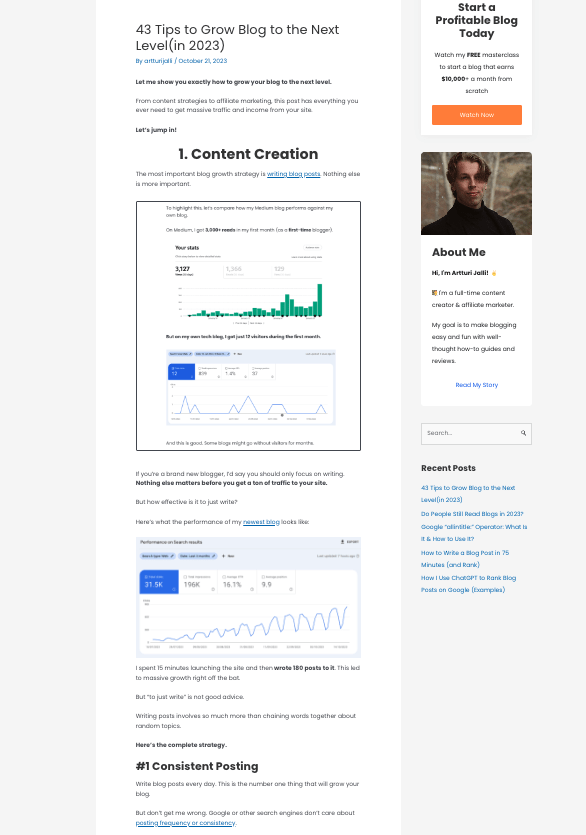
No, I’m not talking about useless stock photos or AI-generated images. But actually useful images that support the learning.

If a blog post doesn’t show images directly relevant and related to the content, it’s unlikely to do well.
Look at this post, for example:
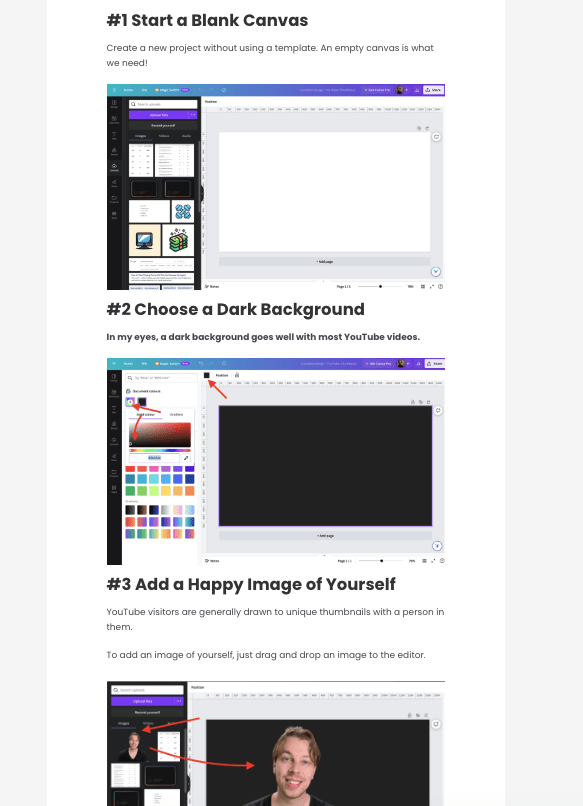
If this post had no images, it would be 100% useless. The images show the visitor how to get things done. Without those, there would be no reason to read this post.
Make sure to read: How to Use Images in Blog Posts
Of course, not all topics need to be this visual where there’s an image for every 30 words.
But most content needs to be highly visual.
This is yet another issue with AI content.
While AI can create images, those images aren’t useful in most contexts.

This is yet another nail in the coffin for AI-generated content.
In most topics, AI fails in the three most important aspects of a good blog post. That’s why it’s no surprise that AI content doesn’t rank on Google.
It’s not because of an AI detector. It’s just because Google is good at spotting bad content.
If you use an AI detector before publishing a blog post, give a good laugh at yourself and never do that again. 🙂 It has absolutely no effect on your blog’s performance.
Do AI Detectors Even Work?
Google doesn’t use an AI detector. But there are lots of AI detectors on the internet.
I’ve experimented with a lot of AI content detectors. Those never work reliably.
Most are as accurate as coinflip.
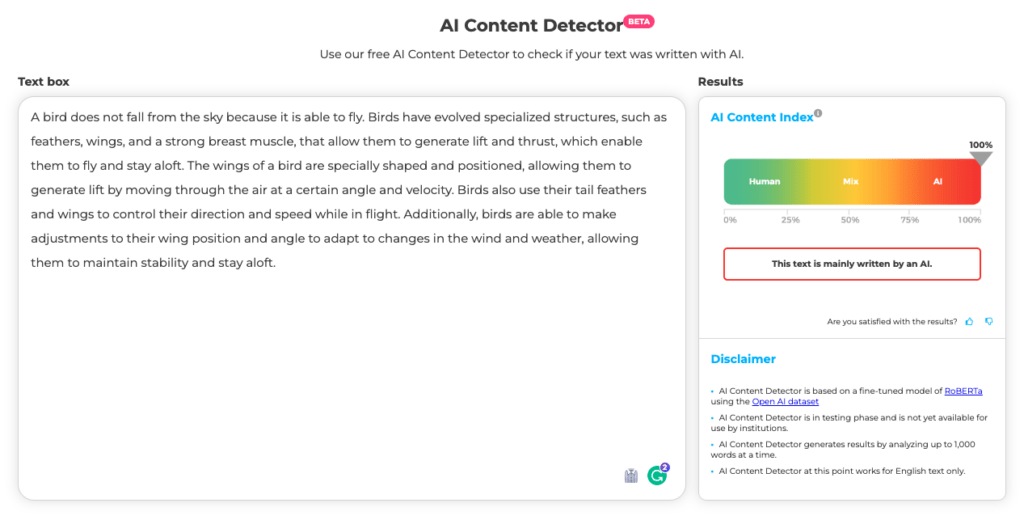
It’s very hard to create a system that would detect AI-written content.
And if there was one, it would be really easy to bypass by making some small changes to the output or input.
But as stated before, it doesn’t really matter if Google used one or not. It’s the high-quality content that moves the needle. Not the ability to dodge an AI detector.
Prompt Engineering to the Rescue?
Prompt engineering is one of the buzzwords in the AI era.
But in blogging, good prompts can’t save you. (Unless your prompts can have the AI come alive, talk to people, form relationships, test products, and whatnot.)

Here’s how I see it:
- If you try ChatGPT for the first time, you can generate a blog post that’s 2/10 in quality.
- With a year of prompt engineering, you’d still be able to generate a post that’s 3/10 at most.
- To rank on Google, your content needs to be 8/10.
So there’s a huge gap between human and AI-written content.
Prompt engineering is not this magical skill that all of a sudden solves all these big problems with AI content.
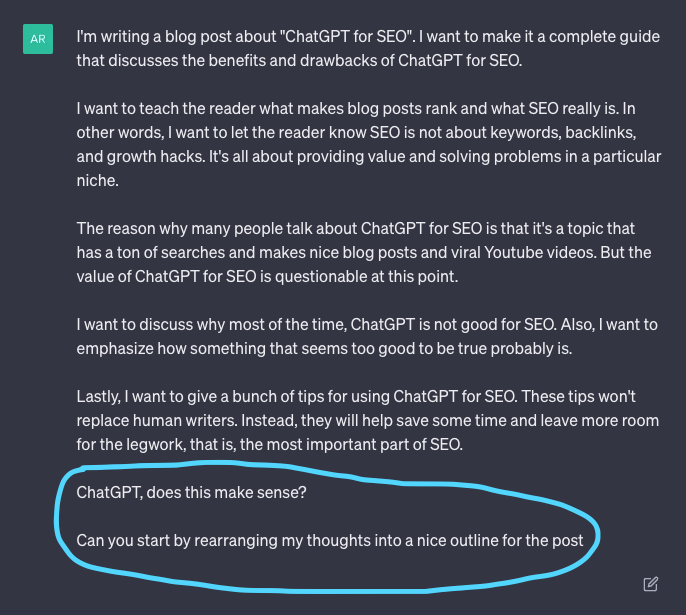
Don’t waste your time learning prompting. It doesn’t work in SEO! (Those who teach it do it only for the views and likes.)
SEO Is Useless Too!
A successful blog post is something easy to read, and understand, and provides value.
Nothing else matters.
Google doesn’t want or need you to place keywords in your blog posts. You don’t need to build links or write guest posts.
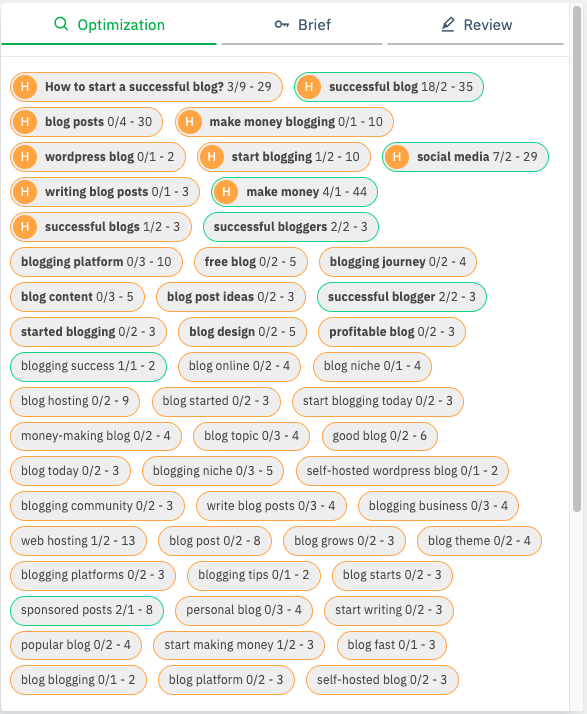
Google will analyze every single post on the internet without your help.
The only thing Google worries about these days is if your post is useful or not.
They no longer use those age-old strategies to do this. Instead, Google sees your blog post more like a human.
Whenever you write, think about the people in your niche. Think about writing a post for your friend who needs help.
That’s what Google essentially is.
If you see an AI SEO or SEO tool that looks tempting, just say no. These days, blogging is far simpler than it used to be.
Read this post that shows how SEO tools don’t work at all.
The SEO industry obviously makes it sound hard because they’re proud of their products and accomplishments.
But just think about your audience. That’s all you really need.
Wrap Up
Don’t use AI to write blogs.
AI can only summarize. But it doesn’t experience, visualize, or add anything new into the mix.
Google doesn’t use AI detectors. But they can easily detect low-value content.
